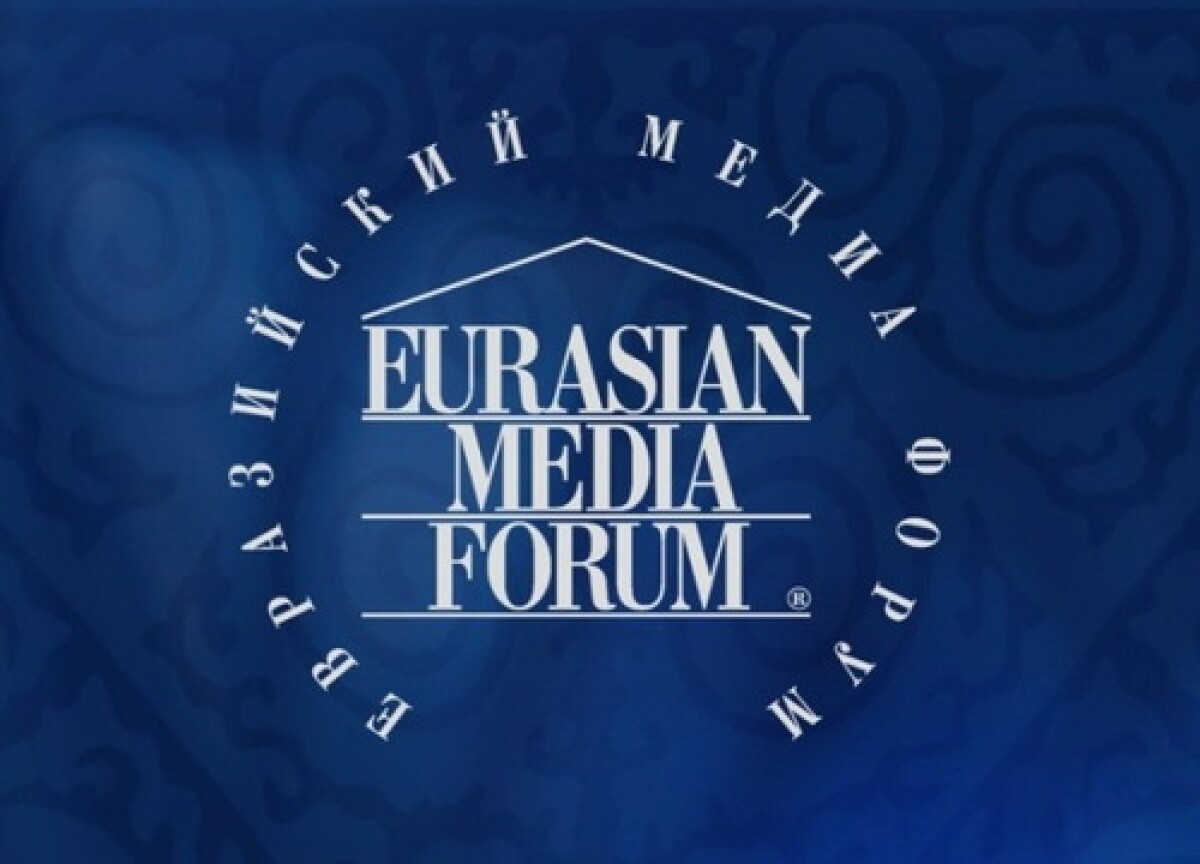
The annual Forum discussed issues of geopolitical reorganization of the world, security strategy in the era of the digital revolution, trends and features of future energy development, digital strategies of the present. Also they touched on the Syrian issue and other topics relevant to the world community and media space.
It should be noted that the Forum was broadcast live in 38 countries around the world. During the work of the Forum, we managed to build trust relationships with the most authoritative world media companies, such as CNN, BBC, Euronews, Bloomberg, and Financial Times.
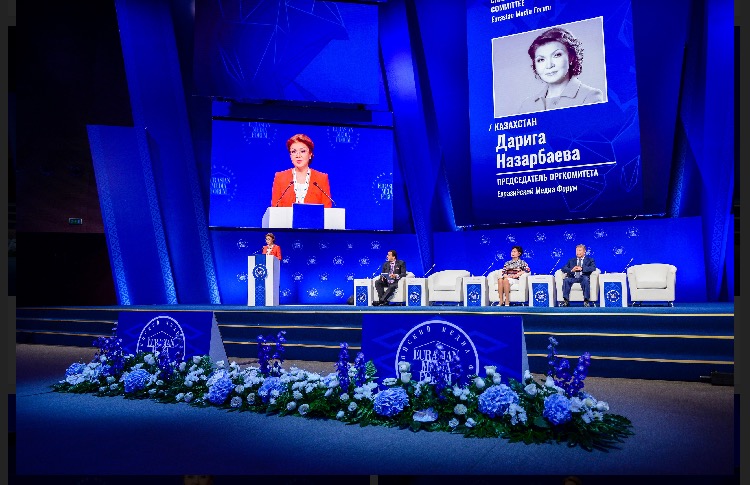
At the official opening ceremony of the Forum, Gulshara Abdykalikova, State Secretary of the Republic of Kazakhstan, Adviser to the President, read out a welcome address to the forum guests on behalf of the Head of State.
In his address, Nursultan Nazarbayev noted the successes, broad influence and high prestige of the Forum, which he acquired for almost 15 years of active work:
"Kazakhstan faces the challenge of modernizing its key directions of development, including political life, economy and social relations. In this regard, society needs to step up efforts to build an open dialogue on the principles of mutual respect, the restoration of global trust. The result of these efforts will be the solution of the vital problems of the population. The head of state called on the media to become leaders of this process, to make every effort to unite society and prevent hostility."
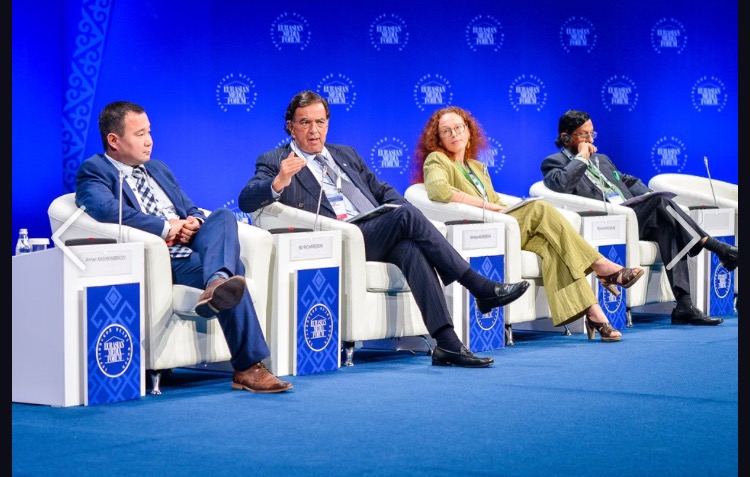
Akhmetzhan Yessimov, the head of JSC “NC “EXPO-2017” also addressed the guests of the Forum. In his speech, he cited a number of figures concerning the press coverage of “EXPO-2017.” According to the head of the Expo, 300 international media outlets have been published, and in the national media more than 700 materials devoted to the opening ceremony of the exhibition. To promote “EXPO-2017” among the international audience, the national company for the first time used such marketing tools as road-shows and marketing caravans that not only promoted wide awareness of the forthcoming exhibition, but also generally increased the recognition of the country, favorably affected its image.
The chairman of the board of the national company also named figures on the attendance of “EXPO-2017”, today it is more than 300 000 people, and visits to pavilions reached 2 000 000 people. Underscoring the authority of the President for the high interest in the exhibition, Akhmetzhan Yessimov noted that the theme of “EXPO-2017” found wide support: 115 countries, 22 international organizations participate in it; many transnational companies provided their development in the field of green technologies.
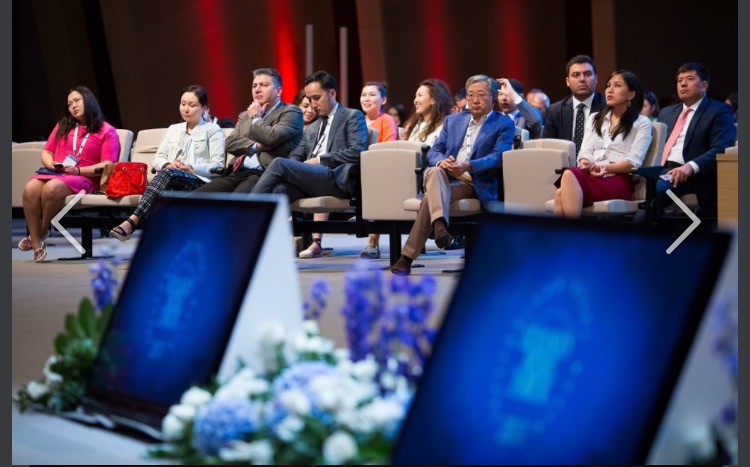
Chairman of the EAMF Organizing Committee, Dariga Nazarbayeva noted in her welcoming speech that the main challenges facing the media industry and society as a whole today are the ideas of radicalism and terrorism that oppose the values of freedom and security, as well as the choice that a new generation makes in the era of "uncontrolled freedom."
"We will not build a new harmonious world in the narrowness of the world outlook, on negative clichés, on pessimism. We must educate a new generation of strong people, to whom the historical grievances and tragedies of the past do not interfere with moving forward with progress. The new era needs new personalities, who take from the past the best and strongest - this is the spiritual heritage of their ancestors and culture and achieve success."
One of the traditionally "hot" topics of the Forum is the situation with the media, which are always at the forefront of information wars. The issues of journalistic ethics are rising ever more sharply," noted Dariga Nazarbayeva.
Speeches of the speakers of the Forum were opened by the former chairman of the European Commission Jose Manuel Barroso. "Globalization is not something that we artificially invented - it is a form of organization of the world community, which dictates reality." Pointing out points of conflict of interests on the world political map, such as North Korea, the Palestinian-Israeli conflict, the Ukrainian crisis, Barroso expressed the opinion that their solution is possible only after passing through an even deeper crisis. He called on people to learn about openness and cooperation for solving global problems facing the world community.
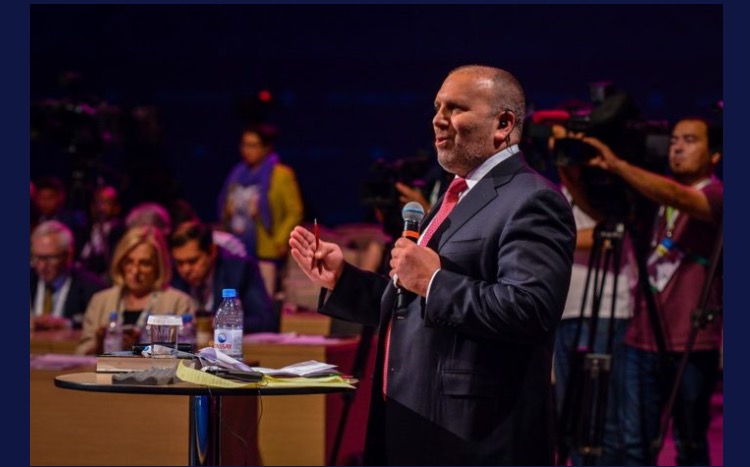
Former United States Ambassador to the United Nations Bill Richardson characterized the tendencies of populism and nationalistic sentiments within countries around the world as characteristic of modern development of society, citing Brexit and elections in the United States as an example. He called Russian-American relations a risk factor for the development of international cooperation. The speaker called for using all kinds of communications and media to unite efforts to overcome global challenges and expressed the opinion that, despite the prevailing prejudice, the advantages of globalization ultimately outweighed the possible risks.
Abdullah Gul, the 11th president of the Turkish Republic, called for looking at the situation through the eyes of a simple man: as the world became more transparent, people see problems, see injustice, their feelings are aggravated. "Politicians have a great responsibility, politicians should not use people's emotions for their political purposes," Gul said.
Ex-head of the Administration of the Prime Minister of Israel, Gilead Sher drew attention to the problem of information manipulation.
"There is a real picture that neither of the sides of the conflict colors. But the efforts of the media of all interested parties purposefully pour the streams of misinformation against the opponents and are trying to present their side in a winning light. This is a matter of global media responsibility in the global world," the speaker said.
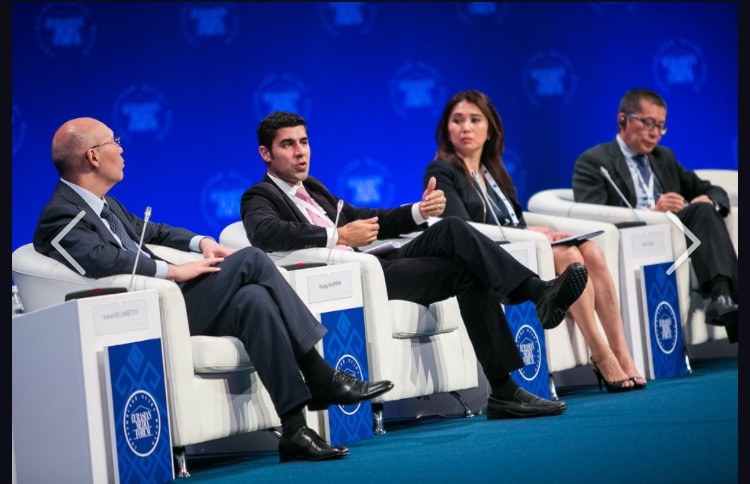
Gilead Sher also called for a focus on the development of effective tools that would help to resolve at the international level the pressing problems facing the development of humanity: climate change, space exploration, legal regulation in the field of social media, and technology development.
One of the sessions of the Forum was devoted to the theme "Future Energy": the power of the green economy".
Moderator Andrei Levchenko greeted the participants of the session and opening the session, noted the container for separate waste collection at the entrance to the Congress Center. "This small detail, but it says that Kazakhstan's plans for a transition to a green economy are real."
The main problems discussed by the speakers were the issue of changing the prejudiced attitude to green energy as an industry requiring large investments and entailing difficult-to-forecast risks and the issue of attracting investments in RES.
During the discussion, Arman Kashkinbayev, Secretary General of the Association of Renewable Energy of Kazakhstan, expressed the opinion that green energy is an inevitable future.
"We hope that after the Expo, new amendments will be adopted in the legislation of the Republic of Kazakhstan, creating favorable conditions for the country's transition to alternative energy. Now its share in the domestic economy is about 1%, at the start-up level. But we have the goals of the "Strategy for the transition to a green economy," and the government takes all necessary measures to ensure that this strategy is consistently implemented."
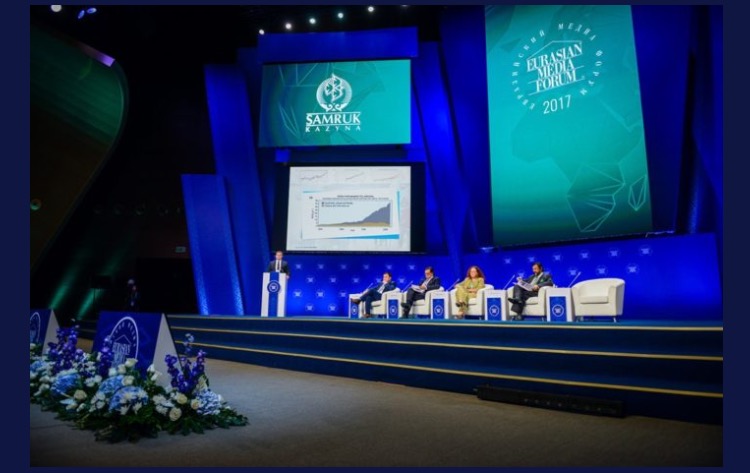
Regarding the timing of transition to renewable energy sources, Kashkinbayev noted that a compromise is required with the technology companies in the metallurgical and oil industry to enable them to increase capacity and maintain the pace of innovation development. In addition, the speaker noted, as the experience of Spain and China shows, a sharp transition to alternative sources can also cause interruptions in the traditional energy supply.
"Ereimentau" wind farm, its capacity for today is 45 megawatts, now the company unites efforts with Chinese investors, which will increase the park's capacity up to 300 megawatts.
Bill Richardson, the former US ambassador to the United Nations on the issue of the prospects for the transition of the world's countries to alternative energy sources, answered that it was still a question of the future. The speaker also called for the involvement of oil companies to develop the industry, attract investment.
The head of the UNEP office - Central Asia Natalia Alekseyeva called the green economy the only possible future for the planet Earth. She noted that only an inclusive green economy has a perspective and meaning when all countries of the world can be equally entitled to it. Concerning investments in the industry, the speaker cited the example of the companies Creon and Lukoil, which are already developing in the field of alternative sources of energy supply, thereby diversifying their activities and laying a great foundation for the future.
Rajendra Pachauri, Nobel Peace Prize winner, took part in the discussion. His speech he devoted to the argumentation of the importance of compliance with the Paris Agreement under the United Nations Framework Convention on Climate Change. To date, traditional energy is comparable in costs to alternative energy, according to Pachauri.
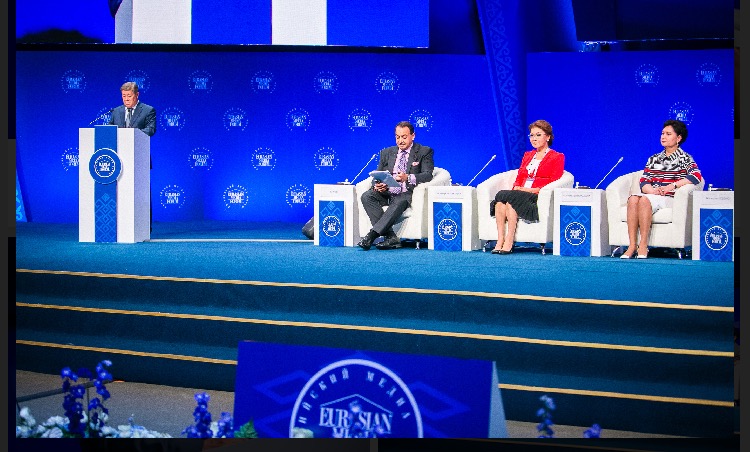
The scientist said that the level of the global ocean over the past 100 years has grown by more than 19 cm, and if the pace is reduced, then by 2100 this figure will reach 1.3 meters. According to forecasts, an increase in global temperature of at least 1 degree will lead to catastrophic consequences, in the form of large-scale climate change on the planet, melting of glaciers. Meanwhile, while maintaining the current volume of carbon dioxide emissions, by 2050 the temperature of the planet will increase by 2 degrees. In order to avoid a catastrophe, by 2050 the amount of emissions should be reduced by 40-70 percent compared to 2010.
"Human influence on climate change is obvious. The more we influence the climate, the more severe and irreversible these changes will be. We have tools to reduce the impact on the climate, and we need to use them to build a sustainable future," Pachauri said.
In the course of the discussion, the speakers expressed a common opinion on the need to review the existing practice of excessive consumption in favor of more economical, sustainable consumption, which carries minimal risks for man and the environment.
A special feature under the speeches of speakers was David Applefield, special representative of “The Financial Times” at the Forum. He offered the McDonald's case to the audience as an example of how the transition to sustainable energy supply can bring image benefits to the company and urged journalists present to widely cover such examples in order to reverse the existing prejudice against the development and introduction of alternative energy sources both in business and in the society as a whole.
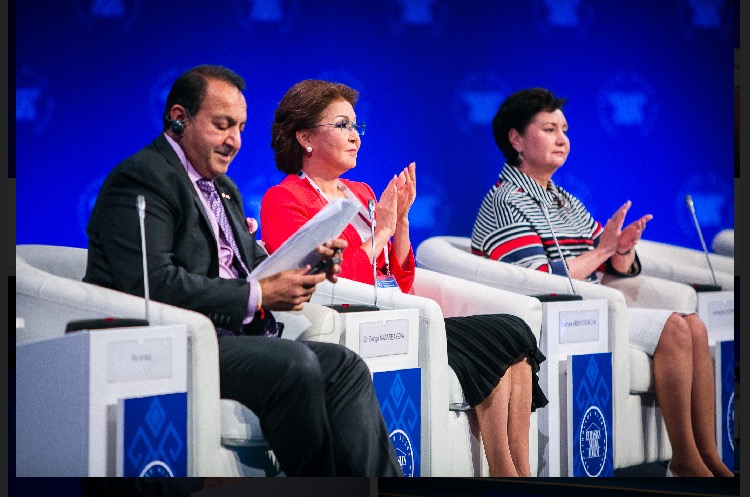
The next topic from sessions of the Forum "Towards a "third world" - in the context of global informatization," Minister of Information and Communications of the Republic of Kazakhstan Dauren Abayev called on participants to fight the threat of fake news, and all this because during the messengers and social networks the information vacuum is filled with unnecessary and unverified information. The participants of the discussion came to the conclusion that information weapons are still among the advanced technologies.
Dauren Abayev said that fighting against fake news for Kazakhstan is one of the important tasks. In his opinion, in the matter of promptness, state bodies are still largely losing social networks.
"The rule of the "golden hour" does not work anymore and it is necessary to inform the population promptly. And we are just working in this direction. At the same time, I do not see a connection between the ban on Smartphone and the operational efficiency of our officials", the minister said.
The chairman of the organizing committee of the Forum Dariga Nazarbayeva expressed her gratitude to all the participants and partners in her closing speech.
"It is gratifying that each of you during these three days expressed his vision of the problems on which the fate of peace and security throughout the world depends, the life of specific people and entire nations."
Let us note that the next anniversary XV Eurasian Media Forum will be held in April 2018 in Almaty.
Translated by Raushan MAKHMETZHANOVA
